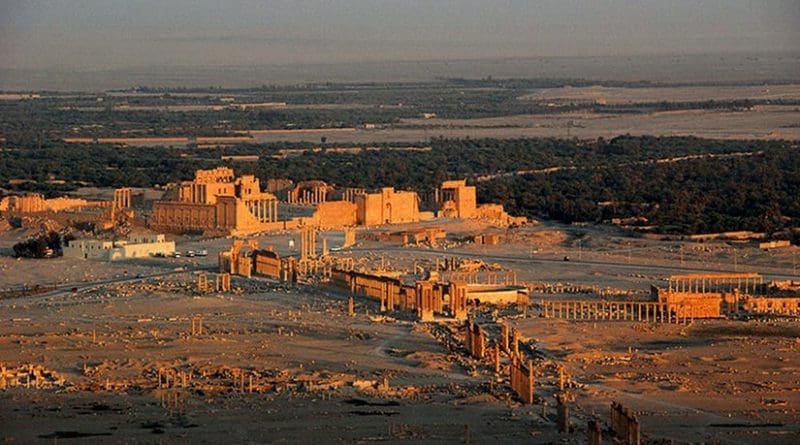The Case For Preserving Cultural History – OpEd
In the past few weeks amid the daily reports of the military situation in Iraq and Syria, disturbing accounts of the destruction of cultural artifacts and books have been reported in Mosul, Iraq. Since the US invasion of Iraq countless priceless artifacts have been destroyed, or have disappeared from museums. As the war rages on in Syria, similar destruction of cultural treasures has also taken place there. Many of the oldest cities in the world including Baghdad, Aleppo, Mosul, and many more also lie in ruins resulting in devastating loss of historical architecture. Grand libraries, once a place of refuge from a stormy region, with a wealth of knowledge worth all the gold in the world, now lie in ruins, its books burned by jihadists. Adolf Hitler burned books and banned art in Germany because he realized the power of knowledge just as the jihadists do today. History has proven that those who seek to destroy knowledge and culture leaving only their own interpretation must be confronted. My hopes to one day see some of this ancient history first hand have been dashed. The world has lost sight of the fact that our culture makes us who we are. We all have a stake in this. Academics and scholars, artists, scientists, and the common man. We must confront those who seek to destroy what humans create for the sake of knowledge and beauty.
During World War II, there was a recognition and response to the looting and destruction of priceless cultural artifacts in Europe. Led by the United States, The American Commission for the Protection and Salvage of Artistic and Historic Monuments in War Areas was created. This small group of experts in the fields of art, architecture, and history, from thirteen nations spread across Europe.1 Known as the “Monuments Men”, these men and women were sent to Europe and given the mission to save rather than destroy; to wade through the destruction and salvage, and protect the cultural treasures of Europe. Why were they given this mission in the midst of such a calamity? Because there was a recognition that for all the loss of life, the politics, and the destruction, an effort must be made to save important cultural artifacts and art. Without it we lose a sense of the past, who we are as humans, and where to go in the future. After all, you can’t look to the past if there is no past to look at.
Just as efforts were made to save the Rembrandt’s, Monet’s, and other cultural treasures, so must a similar mission be undertaken today. The United States is unlikely to take the lead this time. However, this is not a reason not to act. Saving the cultural heritage of the Middle East is the responsibility of all. UNESCO may be best suited to take a leading role in these efforts, possessing the clout and cultural knowledge to bring scientists, artists, and scholars who know what must be preserved together. Under the auspices of UNESCO a cultural refugee repository could be set up to protect what is saved until such a time as it can be returned to its place of origin. Their mission to locate, save, and preserve what is left in Iraq, Syria, and the many other conflicts of the world where culture is being destroyed is one of the great tasks of this century. If the world fails in this task, the ghosts of the past will haunt us, and those who come after us will be deprived of priceless cultural and historical wealth. Much has already destroyed, but it’s not too late! When we lose pieces of our past, we lose a part of our future in the process.
*Michael D. Webber has a Master of Arts in Statecraft and National Security from the Institute of World Politics. He can be reached at [email protected]

